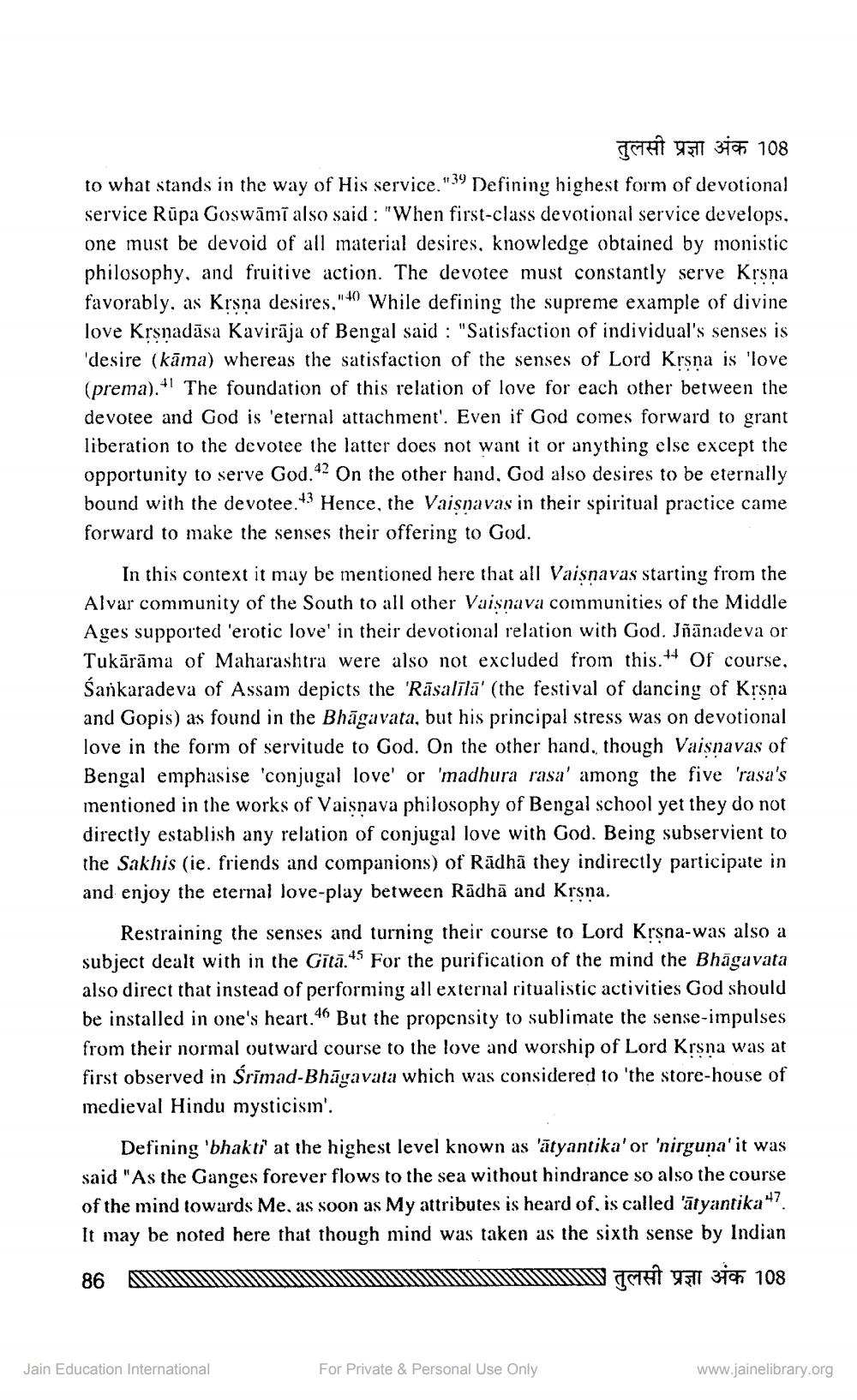________________
Mit 4511 310 108 to what stands in the way of His service."34 Defining highest form of devotional service Rūpa Goswami also said: "When first-class devotional service develops, one must be devoid of all material desires, knowledge obtained by monistic philosophy, and fruitive action. The devotee must constantly serve Krsna favorably. as Krsna desires." While defining the supreme example of divine love Krsnadāsa Kavirāja of Bengal said : "Satisfaction of individual's senses is 'desire (kāma) whereas the satisfaction of the senses of Lord Krsna is 'love (prema)." The foundation of this relation of love for each other between the devotee and God is 'eternal attachment'. Even if God comes forward to grant liberation to the devotee the latter does not want it or anything else except the opportunity to serve God.” On the other hand, God also desires to be eternally bound with the devotee.43 Hence, the Vaisnavas in their spiritual practice came forward to make the senses their offering to God.
In this context it may be mentioned here that all Vaisnavas starting from the Alvar community of the South to all other Vaisnava communities o Ages supported 'erotic love' in their devotional relation with God. Jñānadeva or Tukārāma of Maharashtra were also not excluded from this. Of course, Sankaradeva of Assam depicts the 'Rāsalīlā' (the festival of dancing of Krsna and Gopis) as found in the Bhagavata, but his principal stress was on devotional love in the form of servitude to God. On the other hand, though Vaisnavas of Bengal emphasise 'conjugal love' or 'madhura rasa' among the five 'rasa's mentioned in the works of Vaisnava philosophy of Bengal school yet they do not directly establish any relation of conjugal love with God. Being subservient to the Sakhis (ie. friends and companions) of Rādhā they indirectly participate in and enjoy the eternal love-play between Rādhā and Krsna.
Restraining the senses and turning their course to Lord Krsna-was also a subject dealt with in the Gītā.45 For the purification of the mind the Bhāgavata also direct that instead of performing all external ritualistic activities God should be installed in one's heart.46 But the propensity to sublimate the sense-impulses from their normal outward course to the love and worship of Lord Krsna was at first observed in Srimad Bhāgavata which was considered to the store-house of medieval Hindu mysticism'.
Defining 'bhakti' at the highest level known as 'ātyantika'or nirguna' it was said "As the Ganges forever flows to the sea without hindrance so also the course of the mind towards Me. as soon as My attributes is heard of, is called 'ātyantika"7. It may be noted here that though mind was taken as the sixth sense by Indian
M
86
W
TAHT 511 310 108
Jain Education International
For Private & Personal Use Only
www.jainelibrary.org




